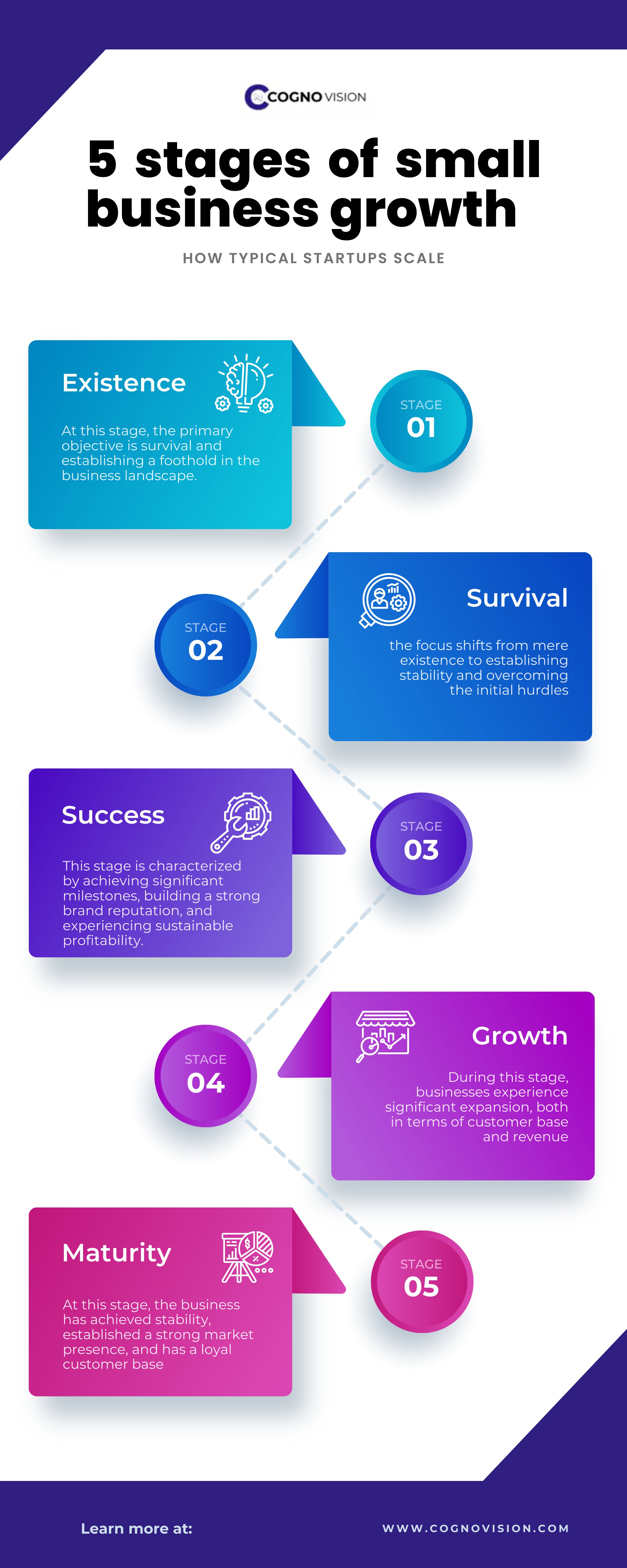At the dawn of the digital age, technology has undergone an incredible revolution led by engineers. From smartphones to space exploration projects – engineers’ masterpieces continue to shape and mold our world in amazing ways. As experts in their respective fields, engineers use their skills to design, create and improve technology. This combination of creativity and engineering plays a key role in driving technological advancements that impact every aspect of our lives.
Engineers are at the forefront of technology. Engineers create solutions that improve our lives and contribute towards technological progress, rising to meet ever-evolving technological challenges with creativity and technical acumen. Here we explore engineering’s profound influence on technological progress:
Understanding the role of engineers in technological advancements
Engineers are the unsung heroes of modern society. They help shape our environment, solve problems and simplify life while being key figures in technological advances.
Innovation and invention
Firstly, engineers play a pivotal role in innovation and invention. Engineers strive to improve existing technologies while developing brand-new ones. Through their creativity, they develop novel ideas with the power to change lives forever. Such inventiveness led to innovations like the internet, electric cars and artificial intelligence.
Engineers do not stop at coming up with brilliant ideas; they also transform them into real, practical solutions. By testing, tweaking and refining their inventions before offering them for public consumption, engineers make many of our most advanced technologies a reality that would otherwise remain just concepts.
Furthermore, engineers help create the infrastructure that supports the technology. They design, construct and maintain roads, bridges and buildings and the infrastructure that supports our technologies – for instance, the internet would only function with data centers and network cables built by engineers.
Building infrastructure
Engineers play a vital role in building the infrastructure required for technology to work correctly. From designing roads, bridges and buildings to maintaining them as needed, engineers play an essential part in supporting technologies like the internet, which would only operate with engineers designing its data centers and network cables.
Moreover, engineers do not just build infrastructure to support current technology. They also plan for its advancement by anticipating what infrastructure may be necessary for the future. By doing this, engineers help facilitate future advancements.
Environmental stewardship
The role of engineers in technological advancements also extends to environmental stewardship. Engineers often lead the development of green or sustainable technologies such as wind and solar power that use resources efficiently while lessening environmental harm.
In addition, engineers help ensure our technologies are environmentally and socially safe. They evaluate the environmental impacts of technologies and work to reduce any harmful side effects, from carbon emission reductions to water pollution prevention.
Problem solving
Utilizing their technical know-how, engineers use their skills to address technical issues that arise in developing new technologies. They are experts at problem solving. If a prototype does not perform as planned, an engineer is often responsible for finding out why and resolving it.
Engineers use their problem-solving ability not just to repair errors, but to tackle larger challenges as well. For instance, they might develop new materials to make devices more energy-efficient or software algorithms to increase accuracy – all while helping advance technology further.
Education and mentorship
Finally, engineers play a pivotal role in technological progress through education and mentorship. Many engineers also act as teachers, sharing their knowledge with future engineers while inspiring and training newcomers – thus keeping the cycle of technological advancement alive.
Pursuing an online engineering degree Canada at the University of Ottawa offers more than technical proficiency. This comprehensive program equips students with key skills for continuous improvement in the technology field. They become mentors who impart their knowledge while cultivating an atmosphere of innovation and growth. Moreover, this course equips students with guidance so that their field always advances.
Notable engineering breakthroughs in the digital era
Engineers shape our future. Engineers have taken significant strides forward in the digital era and achieved amazing breakthroughs, such as:
- Advancements in AI and machine learning
Artificial intelligence and machine learning technologies have transformed multiple industries. Their implementation streamlines complex tasks while increasing efficiency across industries. Machine learning, a branch of AI, allows computers to learn from data. As part of this, they can predict future trends, analyze large sets of information or automate mundane tasks more easily.
Deep learning’s rise has been astounding. A machine learning subset that mimics human neural processes, deep learning models have revolutionized voice recognition, image processing and natural language processing capabilities.
These breakthroughs in AI and machine learning advancements have revolutionized multiple industries, from healthcare and logistics to entertainment and beyond. Today, these breakthroughs power everything from self-driving cars and smart home devices.
- Blockchain technology: A new era of trust
Blockchain technology has also made significant advances. This digital ledger system provides secure, transparent, and tamper-proof transaction records across many computers, so the record cannot be modified retrospectively.
Cryptocurrencies like Bitcoin and Ethereum use blockchain, disrupting traditional financial systems with their revolutionary capabilities. But its impact goes further; healthcare, supply chain management and voting systems are just some potential uses.
Smart contracts are another key blockchain development. They’re self-executing contracts whose terms can be written directly into code, eliminating intermediaries for faster, cheaper and more secure contracts.
- Cybersecurity in the digital age
As digital technology has advanced, so too have its threats. Cybersecurity has therefore become ever more essential, with major advances taking place during this digital era.
Encryption techniques have advanced over the years, becoming more sophisticated and difficult to break in order to protect our data. Multifactor authentication has also become standard practice, adding another layer of protection to digital profiles.
AI and machine learning play an essential part in cybersecurity as they assist in quickly detecting and responding to potential threats. For instance, they can detect suspicious network activity, which indicates potential breaches.
But the most notable breakthrough is quantum cryptography. It uses the principles of quantum mechanics to secure information. Utilizing quantum mechanics principles, this new form of security could revolutionize cybersecurity.
Engineers have made remarkable advances in the digital era. They have transformed AI and machine learning, expanded blockchain technology and increased cybersecurity. These accomplishments have had an immense effect on our world and will help fully unlock its potential.
Breakthroughs in bioengineering and environmental engineering
Bioengineering and environmental engineering are closely intertwined disciplines, each offering promising breakthroughs that could revolutionize lives, leading us toward a more sustainable, healthier future.
Advancements in genetic engineering and biotechnology
Biotechnology, particularly genetic engineering, has seen tremendous advancement in recent years. Recent innovations such as CRISPR/Cas9 — an amazing DNA manipulation tool — have allowed scientists to manipulate gene sequences of organisms such as humans. Scientists use it to modify genes directly affecting health; its power allows for treatments of previously incurable disorders or diseases.
Moreover, bioengineering has also given us lab-grown tissues and organs, which may sound futuristic but is now a reality. Researchers can now create organs in the lab that perfectly match up to each individual patient, drastically decreasing organ donor demand while saving many lives in the process.
An exciting benefit of this technology is lab-grown meat production. Scientists have succeeded in growing meat without raising or slaughtering animals. This is an exciting development in the food industry as it reduces ethical concerns associated with the traditional production of meat products.
Furthermore, advancements in synthetic biology innovations are also giving rise to biofuels (fuels made from living organisms) as renewable alternatives to fossil fuels. Establishing efficient biofuel production processes is a significant step toward building a more sustainable future.
Sustainable energy solutions and waste management systems
Environmental engineering has made incredible advancements. This field aims to resolve environmental problems while making human activities more eco-friendly, including energy and waste management. Environmental engineers are making notable headway in these two areas.
Solar and wind energy have long been around, but their efficiency and affordability continue to increase quickly, thanks to advances in materials science and energy storage technologies. Renewable sources are becoming mainstream, helping reduce our reliance on fossil fuels while lessening climate change’s effects.
In addition to energy, waste management is another vital field where environmental engineering excels. Modern waste systems have moved beyond an ‘out of sight, out of mind’ mentality. Innovative approaches include recycling, composting and waste-to-energy conversion in order to minimize landfills’ loads of garbage.
One exciting development is the proliferation of bioplastics, made from plant material rather than fossil fuels and have a smaller carbon footprint than traditional plastics. They are biodegradable and help combat plastic pollution, an issue facing global communities today.
Engineers have also come up with smart waste bins that automatically sort and recycle waste, making recycling much more straightforward for all of us and showing how technology can contribute to more eco-friendly living. These technologically advanced bins demonstrate how technology is making life more sustainable.
The breakthroughs in bioengineering and environmental engineering have had profound effects. This innovation offers solutions to some of the world’s most pressing problems. The advancements in these fields are opening the way to a healthier and more sustainable future.
Revolutionary contributions in aerospace and robotics engineering
- Stellar advances in aerospace
Aerospace engineering has made tremendous advances, with groundbreaking ideas transitioning quickly from science fiction to reality, including reusable rockets, which are revolutionizing space travel.
Why? These rockets can land back on Earth after successfully delivering their payload into space, drastically cutting costs while making space missions more eco-friendly. This astounding advancement for aerospace engineering, as well as our planet, marks a monumental shift in history.
Another game-changer is space tourism. Imagine it: ordinary people traveling to space for vacation was unthinkable just a few years ago, yet now private companies offer opportunities to experience zero gravity and enjoy celestial views in space, creating an unprecedented tourism boom and diversifying aerospace industries alike. The potential economic ramifications from such development are enormous, such as diversifying aerospace sectors while spurring an entirely new sector of tourism.
- Innovations in robotics and automation
Robots have experienced a remarkable transformation. Once cumbersome machines, today, we see them as agile entities reshaping numerous industries.
Consider manufacturing. Here, robots have revolutionized production lines. Assembling intricate devices with precision and consistency is now easier than ever, plus, they work round-the-clock without fatigue, all contributing to an unprecedented increase in productivity and quality.
Healthcare has witnessed the advent of robotic surgery with great strides forward. Surgeons use robotic arms for complex procedures with extraordinary control, precision and stability, meaning fewer complications and faster patient recovery times overall.
Disaster field response is another area where robots are playing an increasingly significant role, thanks to their ability to enter potentially hazardous zones without fear. Their job? Searching for survivors, assessing damage and carrying out rescues as needed, improving both safety and effectiveness during disaster management.
- Autonomous vehicles and drones: The new era of transportation
The realm of transport and logistics is witnessing a seismic shift. Autonomous vehicles and drones are at the heart of this revolution.
Self-driving cars promise safer, more efficient journeys by eliminating human error as the source of road accidents. Furthermore, this innovation may ease traffic congestion with better route planning capabilities. This technology will revolutionize our daily commute.
Similarly, drones are revolutionizing logistics. By swiftly and safely transporting packages to remote areas, drones have proven themselves as revolutionary agents that reduce delivery times while cutting carbon emissions — not to mention aiding lifesaving missions such as providing medical supplies in crisis areas.
Overall, aerospace and robotics engineering are making extraordinary advances that are revolutionizing numerous industries and shaping an exciting future for all of us. Every innovation brings us closer to an era where space travel becomes mainstream, robots become coworkers and autonomous vehicles dominate roadways.
Conclusion
Engineers are indispensable in technological progress, crafting solutions that shape our world and advancing science and medicine. Their contributions span numerous fields, with each having an enormously significant effect. From AI’s intricate algorithms to biotechnology’s groundbreaking potential to aerospace’s revolutionary strides, engineering innovation lies at the core of all these developments.
Engineers are more vital than ever in a world that’s increasingly reliant on technology. Engineering innovation becomes ever more apparent as we face new challenges and opportunities. Supporting and investing in engineering education and research via online engineering degree programs in Canada are integral in driving future technological advancement. The innovative spirit of engineers will guide the journey toward progress and prosperity.












